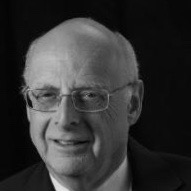As American census data suggests this nation is undergoing a significant and rapid change in its ethnic, racial and social orientation. For the first time in US history, racial and ethnic minorities outnumber caucasians – white births make up fewer than half the children born in the country, according to the US Census Bureau.
Today in the United States, minorities including Asians, Latinos, Blacks and those of mixed-race comprise 50.4 per cent of the overall population, which compares with a 37 per cent ratio in 1990. In four US states – Hawaii, California, New Mexico and Texas – as well as the District of Columbia, the minority populations exceed 50 per cent.
While the traditional “white majority” seems to be unraveling, an even more significant subset of the traditional elite class of American society seems to be diminishing both in terms of numbers and influence, would be the WASPS (White Anglo-Saxon Protestants).
In contrast, one of the few groups that seems to have emerged intact happens to be the Jewish community. While the percentage of Jews in America continues to decline, the social and communal infrastructure of American Jewry represents.
Today, Jews indeed fit all of the criteria that historically defined WASPS. A number of specific characteristics defined their rise to power and prominence:
- Possessing and/or having access to money, power, and media
- Holding key positions of influence within the society
- Maintaining an array of significant business and professional contacts
- Helping to shape the social values and cultural mores of the society
- Being respected by others from across the political and social spectrum
Clearly, other groups of Americans perceive that Jews have such a level of influence within the political system, and beyond. Yet, as a minority community, Jews certainly don’t “feel” like they fit this definition or image. In reality, a significant number of Jews are important players in framing American cultural, political, and social ideas as they are situated in key industries and professions, holding positions that are contributing to the social environment of America.
With such status, comes the notion of maintaining the status quo or peeling back some of the social initiatives that have produced change within the society or that might undercut a group’s standing or its core interests.
A number of theories are being advanced about some of the implications of this emerging phenamenon as it applies to Jews. A central correlation here is that being a WASP or behaving as one places one as an insider Republican.
For some Jews emulating WASP culture is particularly appealing. If Jews take on the traits and aspirations of this highly valued sector, they gain social credibility and greater access to power. Voting patterns may reflect then one such avenue for garnering such connection and recognition. If WASPS are primarily identified as “Republicans”, then Jews ought to be aligned with that party as well.
Another political perspective suggests the following: If liberalism was an entry point into the American system, then conservative political behavior reflects for this cohort a maturation point. This class of voters holds to the view that to align with the Republican Party best serves the interests of the Jewish community and the State of Israel at this time and that Jews ought to “vote their self-interests”.
As with other Americans, there are today a class of Jewish voters who fear an uncertain economic future for this nation and for their families which in some cases has moved them into the conservative camp, feeling that liberal economic and public policy issues are simply not working.
But voting Republican may well not be the only measure of Jewish “Waspiness”, as Jewish Democrats hold similiar political credibility and possibly even more access at this point. Indeed, by all measures American Jewry has made it!























 More news and opinions than at a Shabbat dinner, right in your inbox.
More news and opinions than at a Shabbat dinner, right in your inbox.